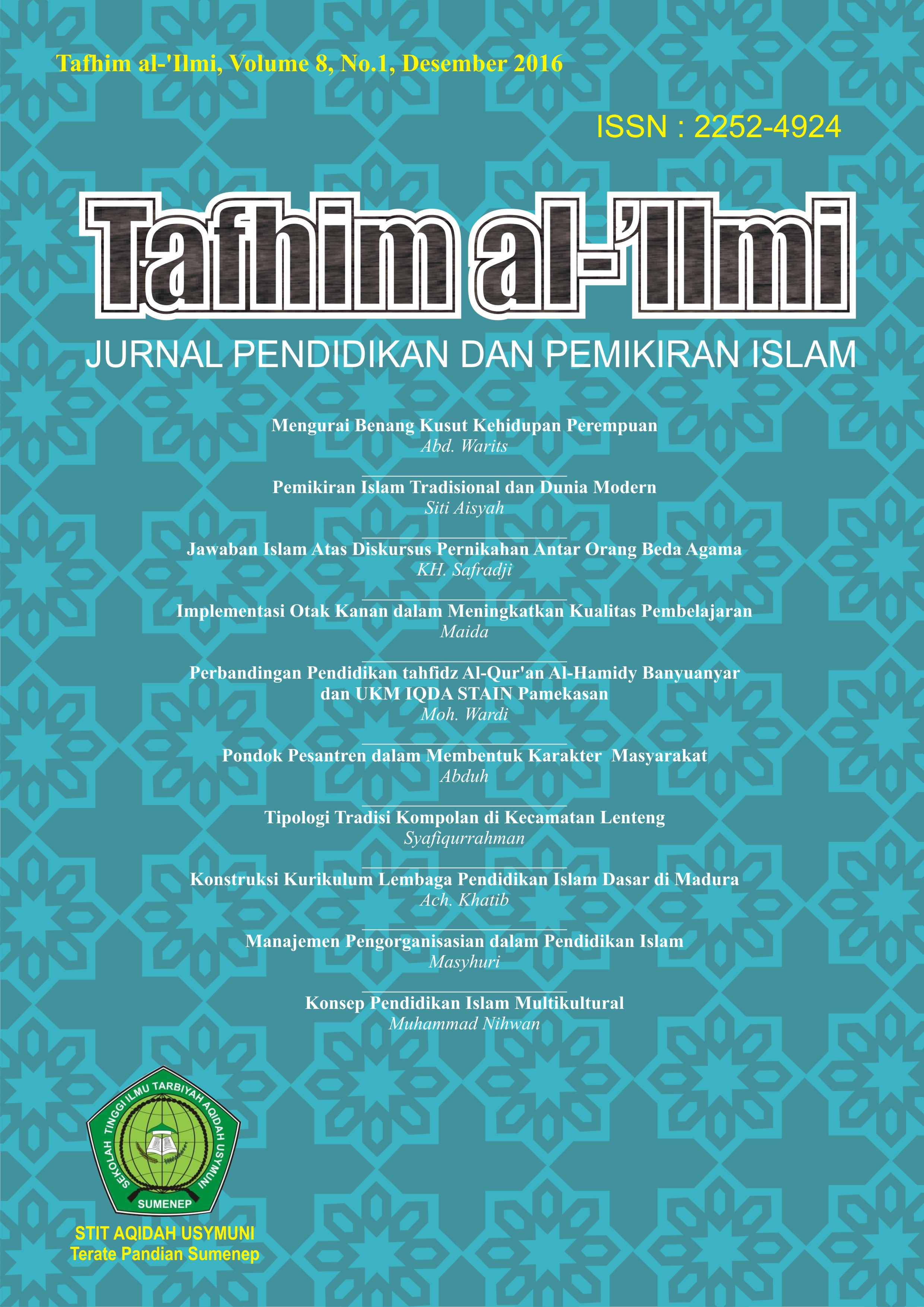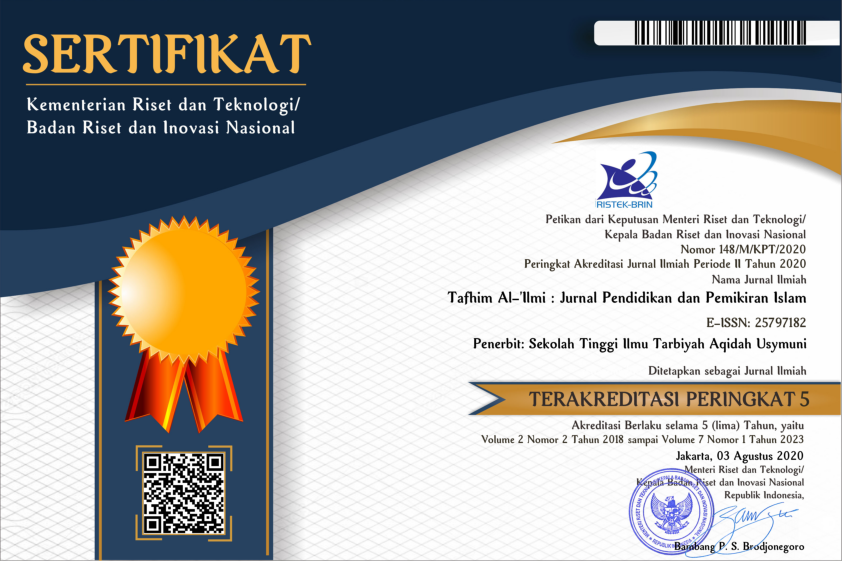Jawaban Islam Atas Diskursus Pernikahan Antar Orang Beda Agama
DOI:
https://doi.org/10.37459/tafhim.v8i1.2939Abstract
Mapping the Mainstreaming to Interfaith Marriage Law. This article intends observe the linkage of the implementation of interfaith marriage with the opinion of Islamic jurists’ and to political and social change in a country. Interfaith marriage law—as occurred in (former) North Yemen, Jordan, Algeria. And Iraq—is not influenced by the Islamic school of thought of the majority population. In contary, interfaith marriage in the aforementioned states is not inline with the mainstream opinion of islamic jurists that forbidding softly (makruh) Muslim man to marry a women of Ahl al-Kitab. The regulation is obviously influennced by the rise of Islamism. Such as the Muslim brotherhood in Jordan, Front Islamic Salvation in Algeria, and the growing influence of Shiite movements in Iraq and Noth Yemen in establishing relgious conservatism in matters of interfaith marriage. Thus, it can be understood why those countries prefer to refer text of the Quran that regulate interfaith marriage law. Keywords: Interfaith marriage law, islamic family law, Ahl-Kitab.Downloads
Published
2017-07-16
How to Cite
Safradji, S. (2017). Jawaban Islam Atas Diskursus Pernikahan Antar Orang Beda Agama. Tafhim Al-’Ilmi, 8(1). https://doi.org/10.37459/tafhim.v8i1.2939
Issue
Section
Articles








